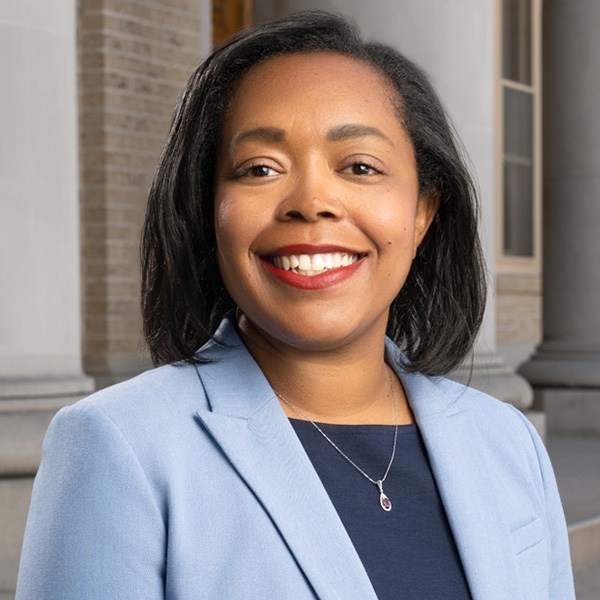
Jenelle Beavers, ’05
Read more
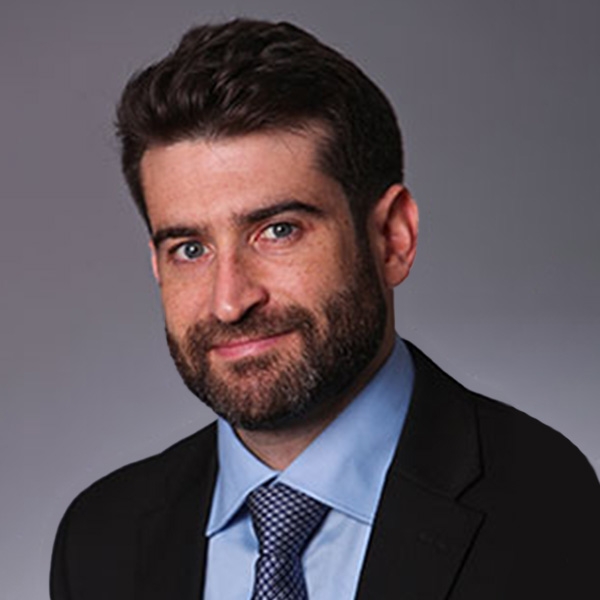
Jonathan Brater, ’11
Read more
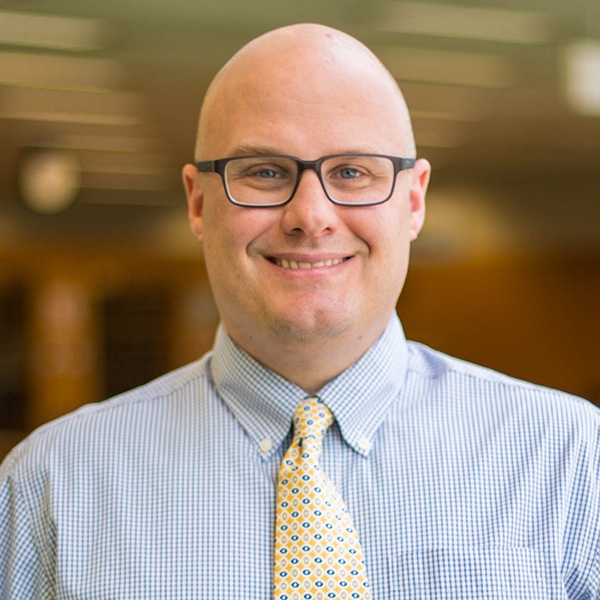
Kincaid Brown, ’96
Read more
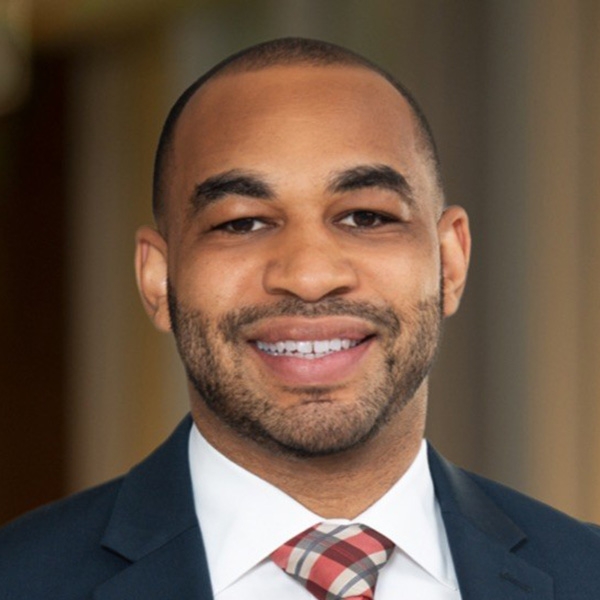
Christopher Burtley, ’15
Read more

Guy-Uriel Charles, ’97
Read more
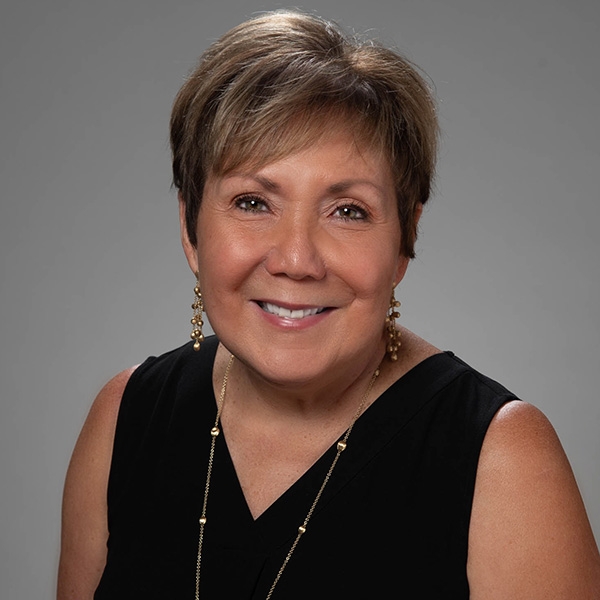
Renee Chelian
Read more
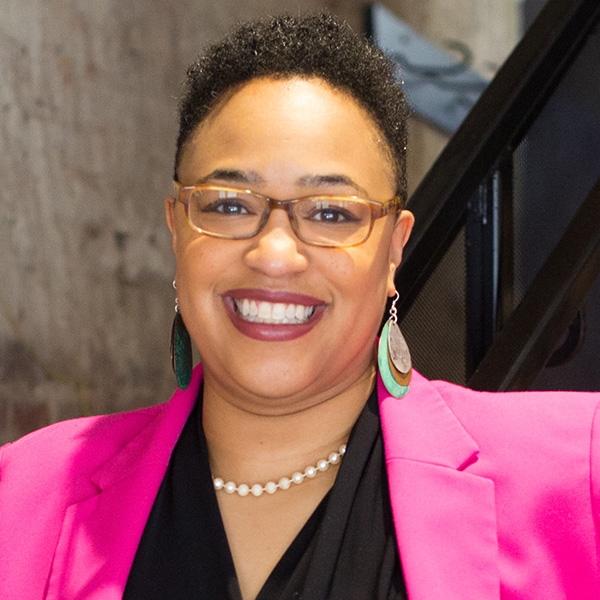
Rasheeda N. Creighton, ’02
Read more
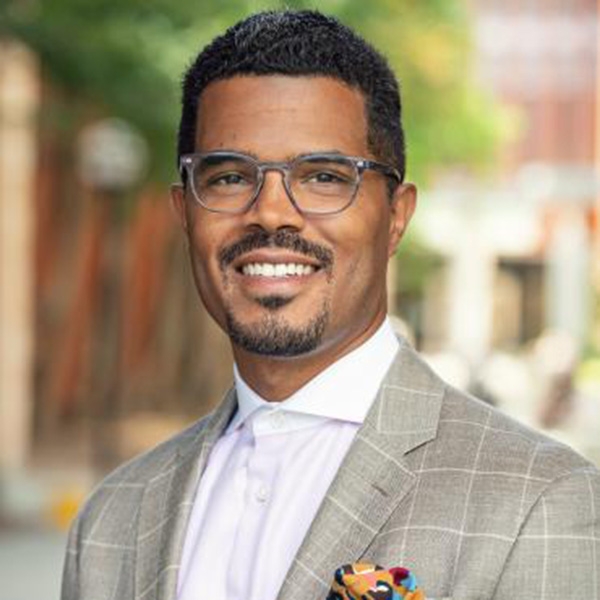
Charles H.F. Davis III
Read more
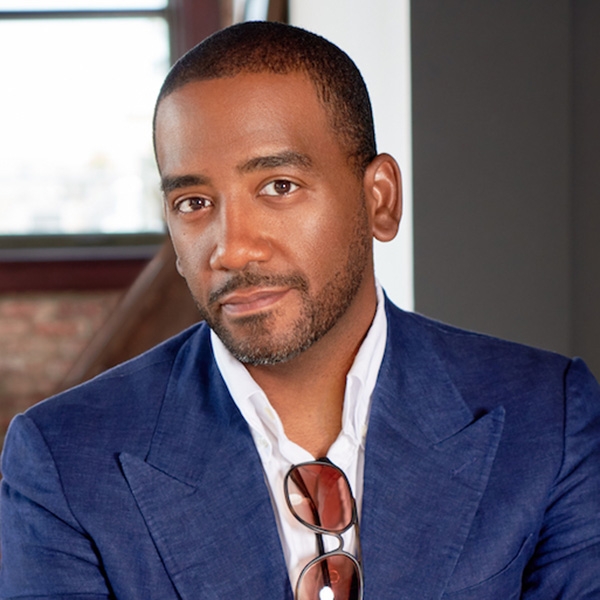
Ronald Falls Jr., ’05
Read more
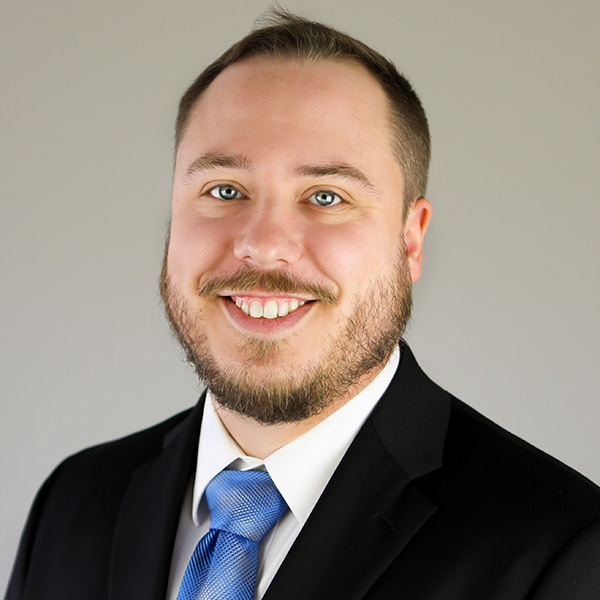
Thomas Grden
Read more
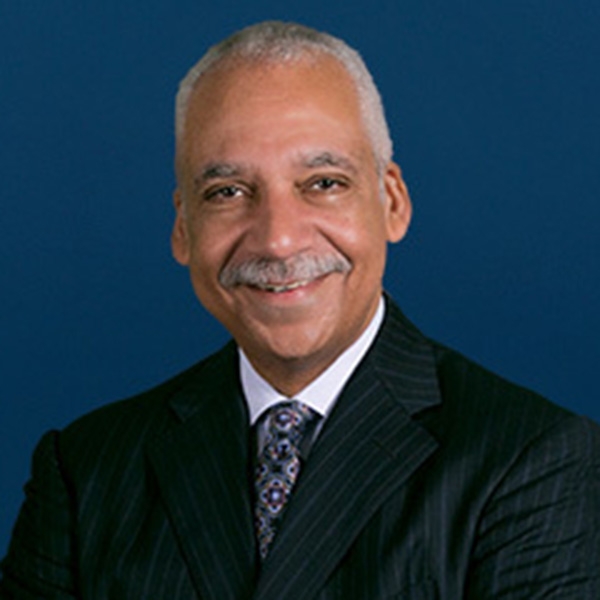
Saul Green, ’72
Read more
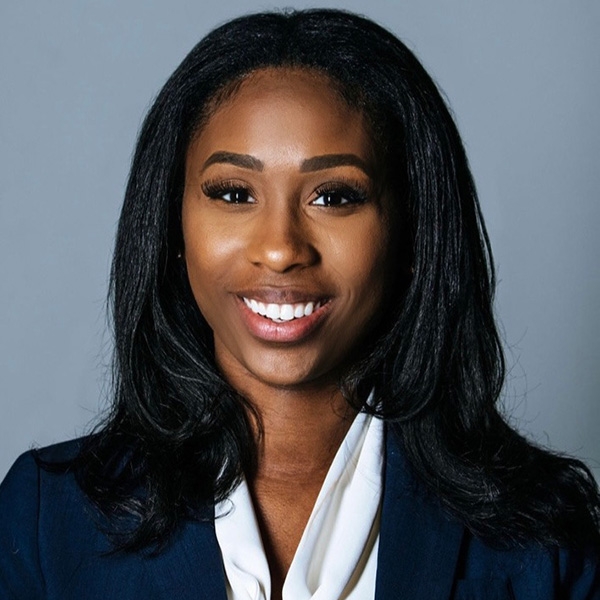
Kya Henley, ’16
Read more
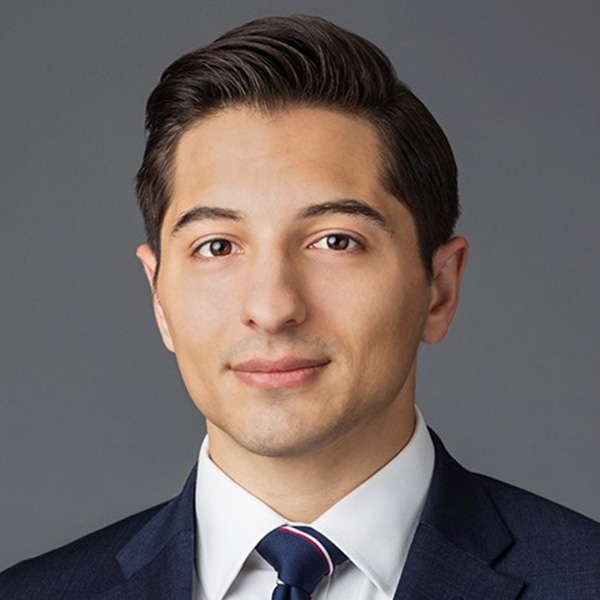
Nicolas Kabat, ’17
Read more
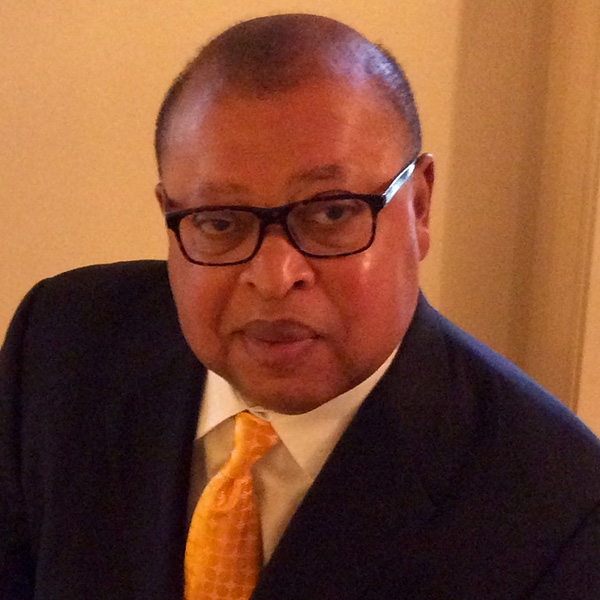
Harold L. Kennedy III, ’77
Read more
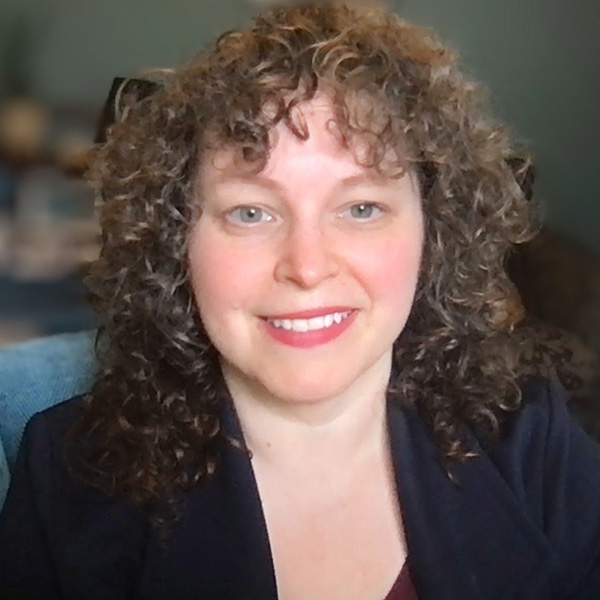
Lisa Martin
Read more
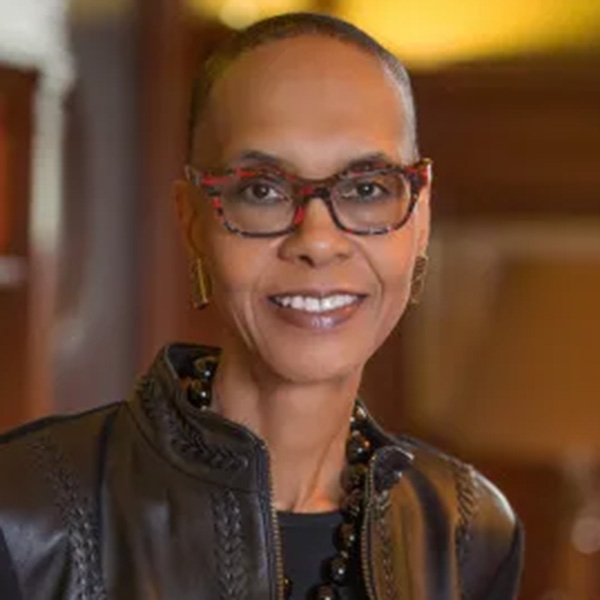
Michele Coleman Mayes, ’74
Read more
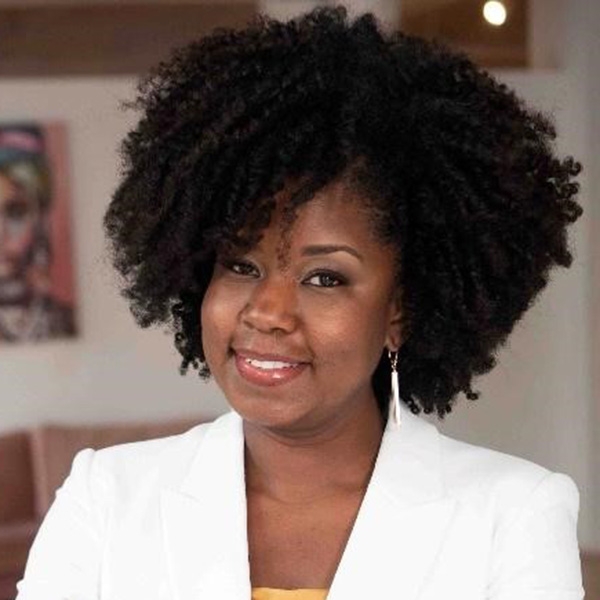
Jamala McFadden, ’01
Read more
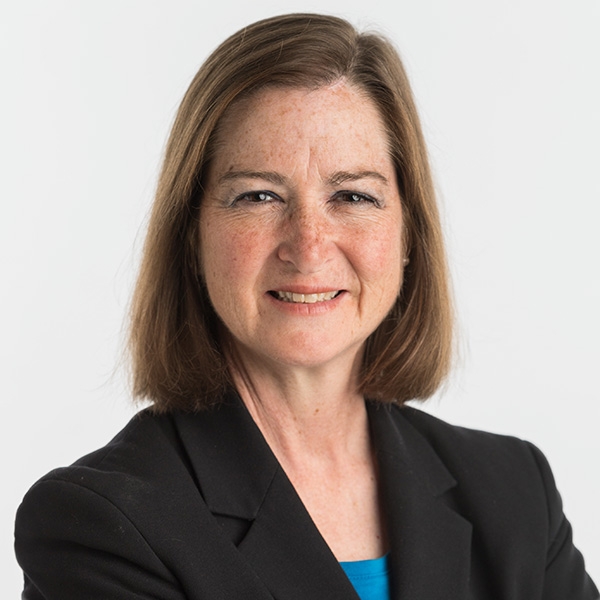
Barbara L. McQuade, ’91
Read more
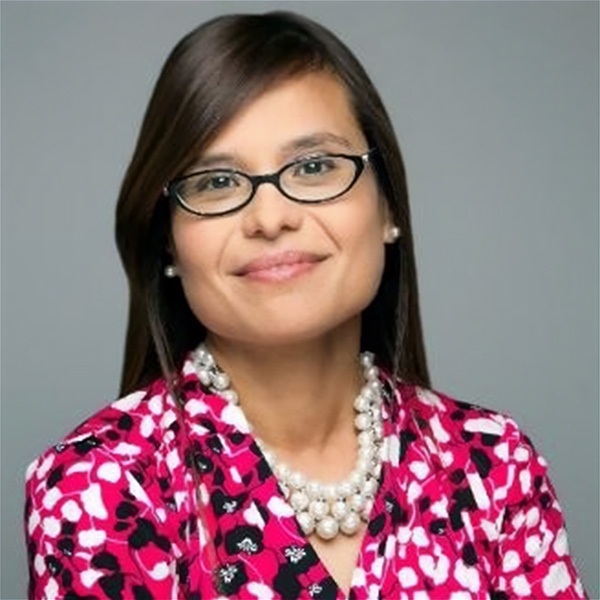
Aracely Muñoz
Read more
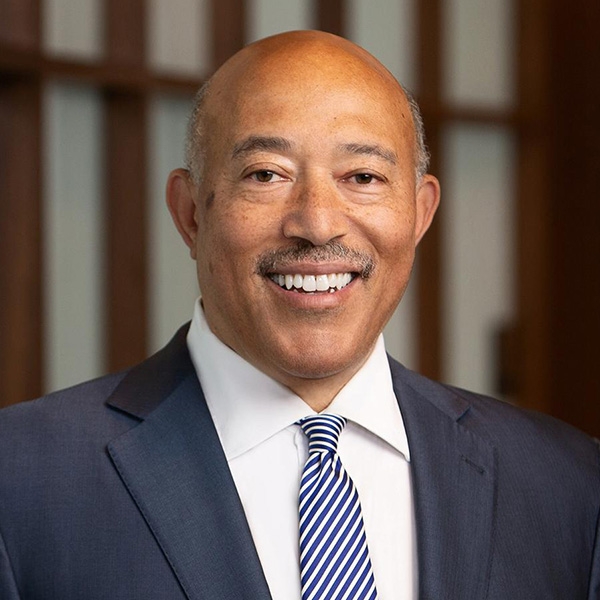
Frederick Nance, ‘78
Read more
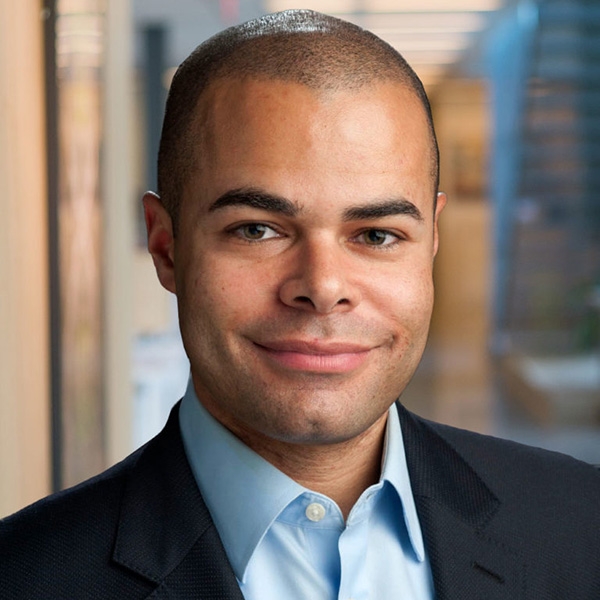
Adrian Ohmer, ’13
Read more
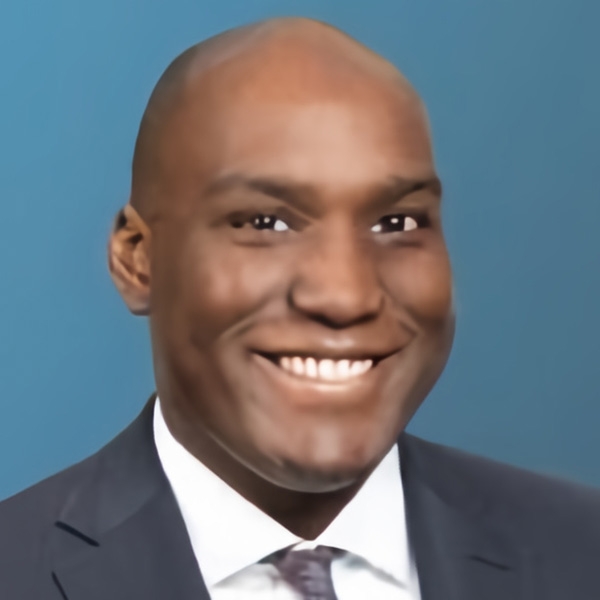
Osahon Okundaye, ’17
Read more
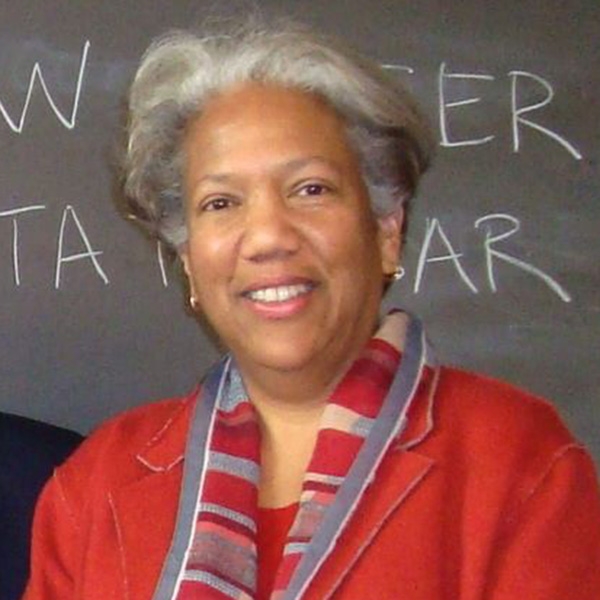
Gail Pabarue, ’85
Read more
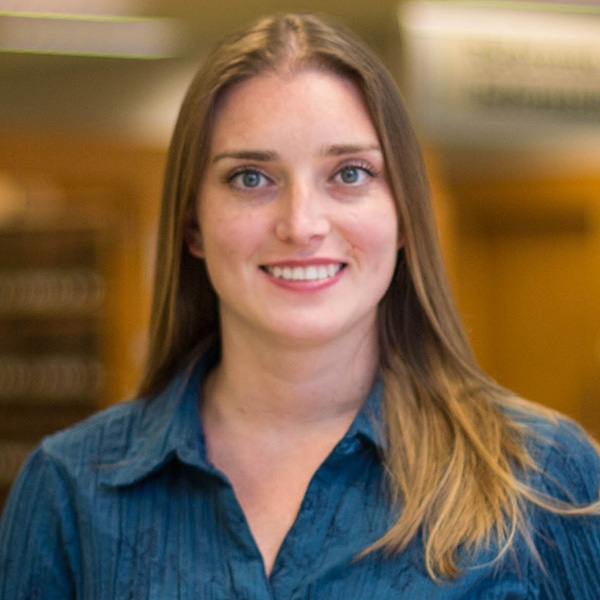
Jessica Pasquale
Read more
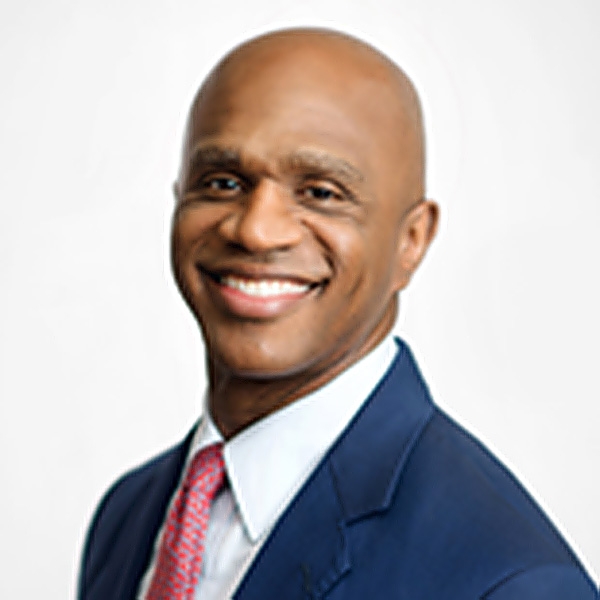
Christopher D. Porter, ’08
Read more
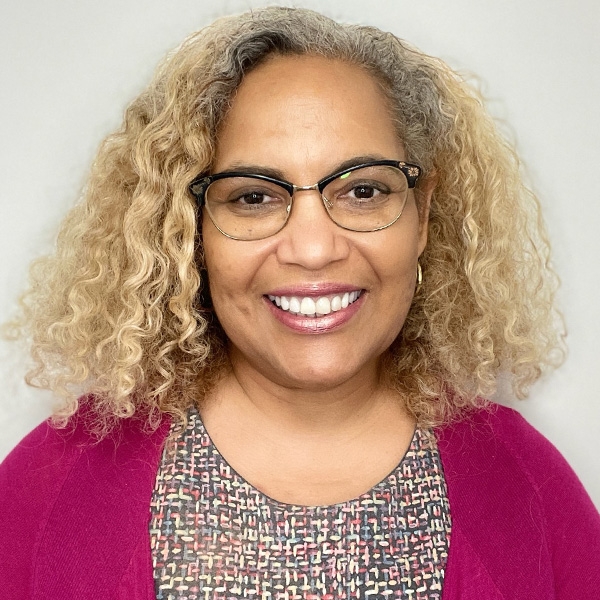
Dr. Claudia Richardson
Read more
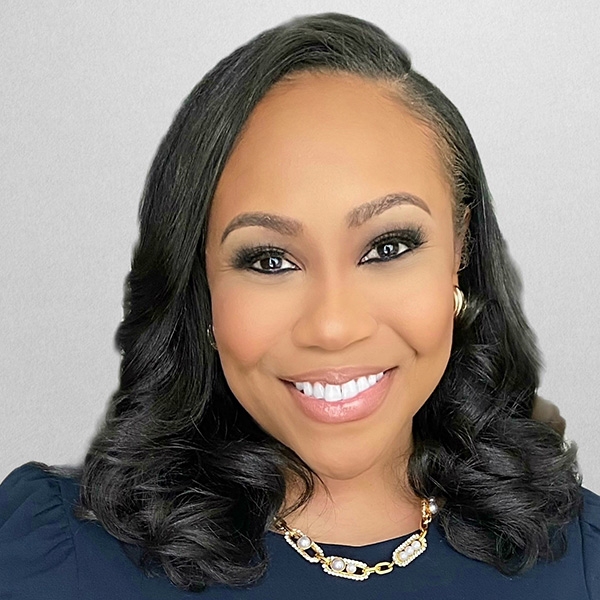
Jerika L. Richardson, ’07
Read more
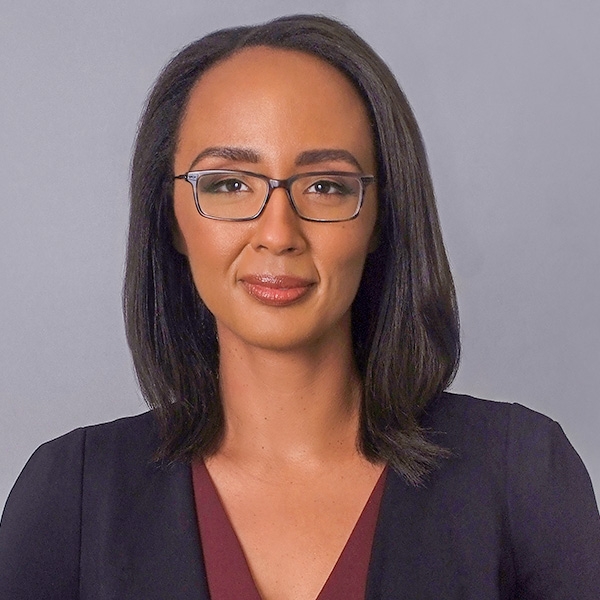
Alexis P. Robertson, ’07
Read more
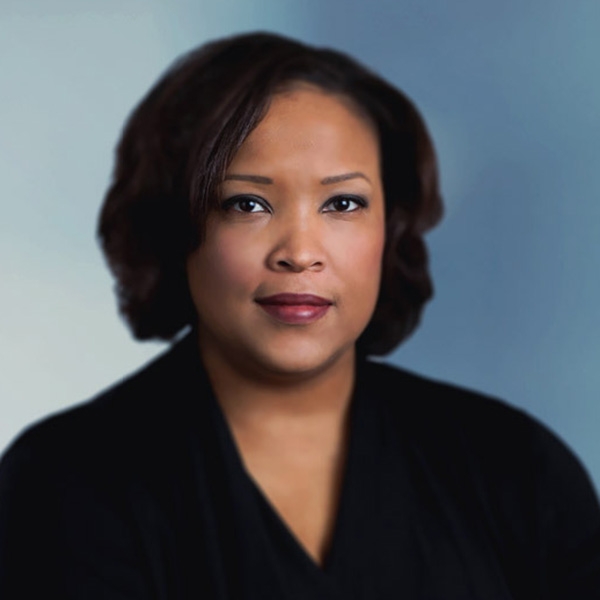
Khalilah Spencer, ’01
Read more
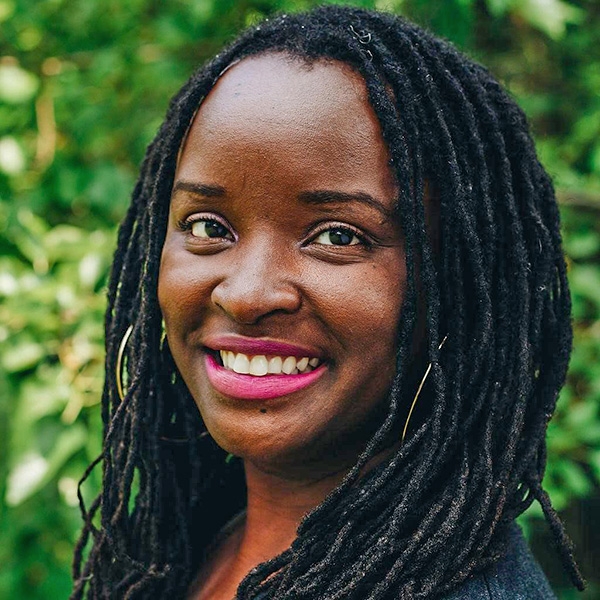
Eboni Taylor
Read more
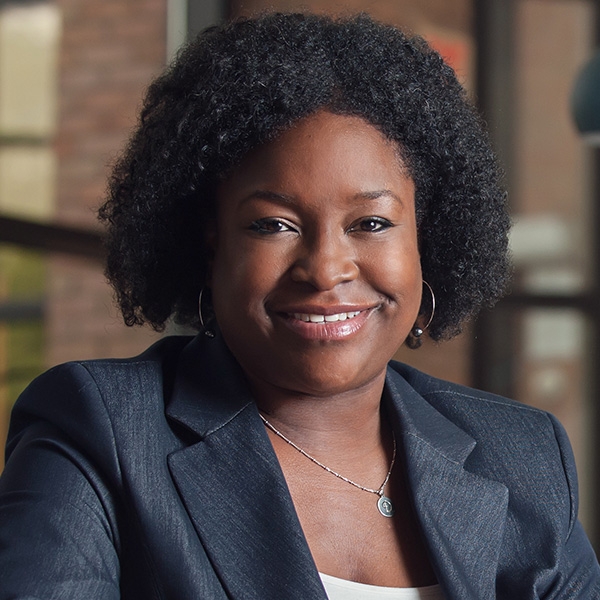
Dana Thompson, ’99
Read more
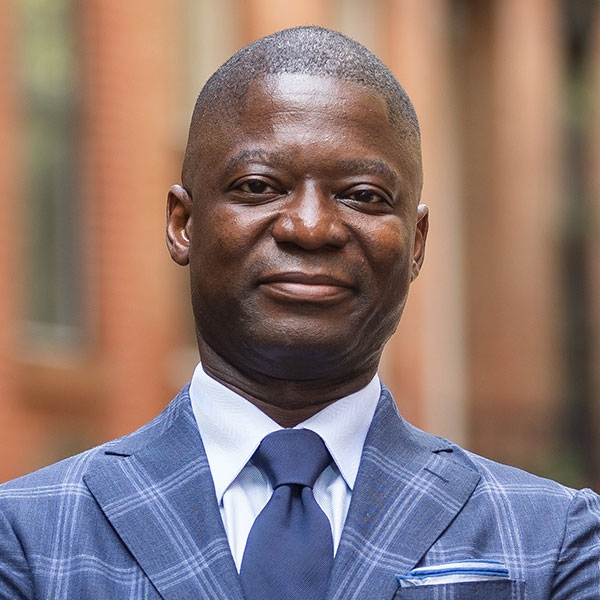
Ekow Yankah
Read more
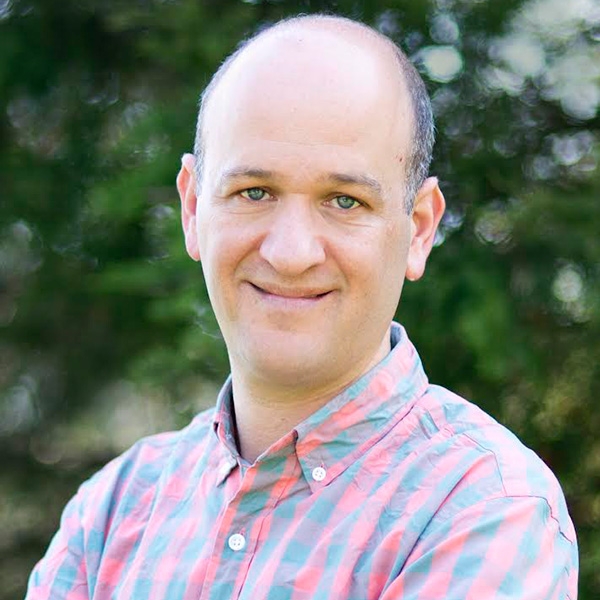
Daniel Zibel, ’04
Read more
Jenelle Beavers, ’05
Current Issues in Student Debt Relief
Saturday, 9–9:50 a.m.
Alternative Careers: The Power of Transferable Skills
Saturday, 2:10–3 p.m.
Jenelle Beavers is a managing director with Alvarez & Marsal Disputes and Investigations in Denver and Washington, DC. She specializes in investigating allegations of fraud, false claims, and conflicts of interest, and advises clients on compliance and strategic preventive management in regulated industries.
Previously, she was vice president for strategy at Colorado State University, counsel at the University of Missouri System, and associate director of the University of Missouri Honors College. She has also served as a special assistant US attorney and as a trial attorney at the Department of Justice, where she received a Special Commendation for Outstanding Service from the assistant attorney general of the United States. Beavers earned her JD and MPH from the University of Michigan and her BA from the University of Missouri-Columbia.
Jonathan Brater, ’11
Keynote Luncheon: Misinformation and the Black Vote
Saturday, 12:15–1:50 p.m.
Jonathan Brater has directed the Michigan Bureau of Elections since 2020. He serves as Midwest Regional Representative on the Executive Board of the National Association of State Election Directors and as Chair of the Electronic Registration Information Center’s Board of Directors. Before his current role, Brater was the Michigan Department of State’s legal policy director. Brater previously worked as counsel for the Brennan Center’s Democracy Program and on the staff of the US House Committee on Energy and Commerce. He is a graduate of the University of Michigan Law School and Columbia University.
Kincaid Brown, ’96
Who Are We? Report from the Michigan Law Alumni Survey
Friday, 4–4:50 p.m.
Kincaid Brown is the fifth director of the University of Michigan Law Library. He received his JD, masters of science in library information services, and BA in history from the University of Michigan. He has published and presented on numerous topics including library management and collection development, technology, research, and open access to legal information.
In his roles, Brown focuses on building and administering digital services such as the University of Michigan Law School Scholarship Repository, developing the Library’s collection of electronic and print legal materials, and developing services in support of research done by Law School faculty and students.
Brown’s professional roles include service on many boards and committees, including currently serving on the State Bar of Michigan Michigan Bar Journal Committee where he is editor of the Libraries and Legal Research column. He also previously served as chair of the State Bar of Michigan Libraries, Legal Research, and Legal Publications Committee, the American Association of Law Libraries (AALL) Computing Services Special Interest Section, and the AALL Indexing of Periodical Literature Committee. He teaches Advanced Legal Research in the Law School every winter semester.
Christopher Burtley, ’15
Health Care Disparities During the Pandemic
Saturday, 9–9:50 a.m.
Christopher Burtley is an interdisciplinary executive who currently serves as the vice president of strategy for DC United of Major League Soccer. He also is in his second term as a gubernatorial appointee to the state of Michigan’s Black Leadership Advisory Council. He previously worked at Foley and Lardner LLP and worked as of counsel at Barnes and Thornburg LLP.
In his legal practice, Burtley has represented clients in a range of contentious matters, including breach of contract, tortious interference, supply chain disputes, and more, providing counsel through discovery and trial preparation. Beyond his litigation work, he offers strategic advice to emerging business entities and individuals seeking to grow their business while effectively managing risk, and counsels professional athletes and teams on a variety of legal issues including commercial partnerships and strategic planning.
Guy-Uriel Charles, ’97
Keynote Luncheon: Misinformation and the Black Vote
Saturday, 12:15–1:50 p.m.
Guy-Uriel E. Charles is the Charles J. Ogletree Jr. Professor of Law at Harvard Law School where he also directs the Charles Hamilton Institute for Race and Justice. He writes about how law mediates political power and how law addresses racial subordination. He is currently working on book, with Luis Fuentes-Rohwer, on the past and future of voting rights, under contract with Cambridge University Press, which argues that the race-based model that underlies the Voting Rights Act has run its course and that the best way to protect against racial discrimination in voting is through a universal, positive rights model of political participation.
He teaches courses on civil procedure; election law; constitutional law; race and law; critical race theory; legislation and statutory interpretation; law, economics, and politics; and law, identity, and politics. He is a member of the American Academy of Arts & Sciences and the American Law Institute.
Before teaching at Harvard, he taught at Duke Law School and at the University of Minnesota Law School. He also served as interim co-dean at the University of Minnesota from 2006-2008. He has been a visiting professor at Georgetown, Virginia, and Columbia law schools. He was a past member of the National Research Commission on Elections and Voting and the Century Foundation Working Group on Election Reform. In 2006, he was awarded the distinguished teaching award at the University of Minnesota Law School. In 2016, he was awarded the distinguished teaching award at Duke Law School.
Renee Chelian
After Roe and the Future of the Rule of Law
Saturday, 10:05–10:55 a.m.
Renee Chelian is the founder and CEO of Northland Family Planning Centers. Since 1976, these three metro Detroit reproductive health clinics have provided safe, compassionate abortion care services to pregnant people throughout the greater Detroit area, Michigan, and surrounding states. In a career that began before the historic 1972 Roe v. Wade Supreme Court decision, Chelian’s work as an abortion and reproductive health provider has helped set the national standard for excellence in patient care and education, including partnerships with several physician training programs.
Chelian’s advocacy for abortion and reproductive health extends beyond the United States. She has worked closely with state and federal legislators, often stepping up to legally challenge threats to abortion access and the civil rights of pregnant people. In 2010, she testified with the Center for Reproductive Rights at the UN Human Rights Council in Geneva, Switzerland, and successfully fought for recognition of abortion providers as human rights defenders. She is a founding member of both the National Abortion Federation and the National Coalition of Abortion Providers (now known as the Abortion Care Network). Most recently, Chelian helped to spearhead the Reproductive Freedom for All ballot initiative in Michigan (Proposal 22-3), which passed in the November 2022 election and provides a state constitutional right to reproductive freedom, including decisions “about all matters relating to pregnancy,” such as abortion and contraception.
Rasheeda N. Creighton, ’02
Alternative Careers: The Power of Transferable Skills
Saturday, 2:10–3 p.m.
Rasheeda N. Creighton is an experienced corporate executive who has always taken the road less traveled. In 2020, after a successful 15 year career at a Fortune 100 company, Creighton harnessed her skills and passions into a convergence of business ventures that all work towards a singular path: creating and holding spaces that connect people, particularly Black and brown people, to opportunities for growth and wealth building, ultimately leading to a path of financial freedom.
Creighton is the co-founder of JWC Foundation, a nonprofit that connects Black business owners of all stages with other business partners, service providers, programs, and financial resources. She is also the founder of Killing Superwoman, a platform for Black women to break the “Superwoman Syndrome” in their lives through budget coaching and financial education. Creighton earned her bachelor’s degree in English from Spelman College and was a Clarence Darrow Scholar while at Michigan Law. She is an active community leader in Richmond, Virginia. Of the many hats Creighton wears, her favorite is being mom to her daughters, Zoe, Akilah, and Saván.
Charles H.F. Davis III
Current Issues in Student Debt Relief
Saturday, 9–9:50 a.m.
Charles H.F. Davis III is an assistant professor in the Center for the Study of Higher and Postsecondary Education at the U-M School of Education. His current research and teaching broadly focuses on issues of race and racism, systems of oppression, and structures of domination in US higher education and its social contexts. In particular, his current ethnographic work uses traditional and visual methods to explore how Black campus and community activists build and exercise political power to drive social and institutional change. Davis’s work has been featured by leading national news outlets, including the Los Angeles Times and The Chronicle of Higher Education, as well as cited in amicus curiae briefs in the Fisher v. University of Texas and the SFFA v. Harvard Supreme Court cases.
Prior to joining the U-M faculty, Davis was an assistant professor of clinical education in the Rossier School of Education at the University of Southern California, where he helped launch two national research centers focused on advancing racial equity in education. Davis earned his doctorate in higher education from the University of Arizona and holds master’s degrees from the University of Pennsylvania Graduate School of Education and Florida State University.
Ronald Falls Jr., ’05
Hybrid Work and Self Care: Managing the Challenges of the Legal Profession
Sunday, 10–11 a.m.
Ronald Falls Jr. is an assistant general counsel at Fireblocks Inc., a software-as-a-service solution for digital asset self-custody and payments. Falls also is a strategy consultant and angel investor through his firm LA Executive 9. Prior to joining Fireblocks and launching LA Executive 9, Falls served as the chief operating officer at global investment manager Post Advisory Group (PAG) in Los Angeles, where he managed the firm’s business matters, including compliance, legal, operations, client services, finance, information technology, human resources, and operational risk management. Prior to joining PAG, Falls worked in Singapore for a distressed debt and special situations hedge fund, where he served as the general counsel and chief compliance officer. He began his career in the asset management group at Goldman Sachs.
Thomas Grden
Hybrid Work and Self Care: Managing the Challenges of the Legal Profession
Sunday, 10–11 a.m.
Thomas J. Grden is a clinical case manager for the State Bar of Michigan’s Lawyers and Judges Assistance Program. He has experience working with impaired professionals, substance use disorders, and mental health diagnoses, and facilitates a weekly support group open to licensed attorneys. Grden presents regularly on topics pertaining to law student and lawyer well-being, and is an Institute of Continuing Legal Education contributor. He holds a master’s degree from the University of Detroit Mercy in counseling with a focus on addictions.
Saul Green, ’72
What the Police?
Saturday, 3:15–4:05 p.m.
Saul Green is of counsel and a member of Miller, Canfield, Paddock, and Stone’s commercial litigation and dispute resolution practice group. Green specializes in alternative dispute resolution, including high-profile litigation and providing consultation to law enforcement agencies on best practices and the implementation of police reforms. Green has served as the director of The Michigan Barber School since July 2017 and was the deputy mayor of the city of Detroit from 2008 to 2011. Green was appointed United States attorney for the Eastern District of Michigan by President Clinton and served in that capacity from May 1994 to May 2001. During his many years of public service, he has held the positions of Wayne County corporation counsel, chief counsel for the US Department of Housing and Urban Development Detroit Field Office, and assistant US attorney. In December 2008, he completed service as the independent monitor overseeing implementation of police reforms in Cincinnati, Ohio.
Green has taught as an adjunct professor at Michigan Law. He also holds a bachelor’s degree in pre-legal studies from U-M. He is an active volunteer on behalf of the University, formerly serving as president of the Alumni Association and on its board of directors and numerous committees.
Kya Henley, ’16
Healthcare Disparities During the Pandemic
Saturday, 9–9:50 a.m.
Kya Henley is an associate at Cadwalader, where she works in the white collar defense and investigation practice group as well as the corporate and finance services litigation and regulation group. She represents companies and individuals in a range of government and internal investigations, civil litigation, white collar criminal defense matters, regulatory inquiries, compliance issues, crisis management, congressional investigations, and complex business litigation.
Henley has represented clients in a variety of industries, including health care, technology, financial and consulting, defense contractors, and religion. She regularly represents clients in criminal and civil enforcement matters before the Department of Justice, the Securities and Exchange Commission, state attorneys general offices, and other federal agencies and is often called on to advise on health care enforcement matters.
Prior to joining Cadwalader, Henley was an associate at Bradley, Arant, Boult & Cummings, and served as a trial attorney public defender in the metropolitan Baltimore area immediately after law school, where she often worked at the cross section of the criminal justice system and public health services for indigent clients. During her time at Michigan Law, Henley was a graduate student instructor at U-M, vice chair of the Black Law Students Association, and was a recipient of the Dores McCree Award for her dedication to the Law School community.
Nicolas Kabat, ’17
After Roe and the Future of the Rule of Law
Saturday, 10:05–10:55 a.m.
Nicolas Kabat is a staff attorney at the Center for Reproductive Rights and assists with all aspects of the Center’s US litigation. Kabat has represented the Center’s clients in Texas, Florida, Tennessee, and Virginia, including in Whole Woman’s Health v. Jackson before the US Supreme Court. Before joining the Center, he was a litigation associate at Paul, Weiss, Rifkind, Wharton & Garrison LLP, where he represented families of the victims of the Sandy Hook Elementary School shooting. Kabat also clerked for the Hon. Gabriel W. Gorenstein of the US District Court for the Southern District of New York and interned for the Civil Rights Division of the Department of Justice and the National Housing Law Project.
Kabat graduated cum laude from Michigan Law, where he was an executive editor of the Michigan Journal of Race & Law, a pro bono consultant to the Ann Arbor Human Rights Council, co-founder and co-president of the Racial Justice Coalition, and a recipient of the Dores McCree Award. He also received an master of urban planning from the University of Michigan and a bachelor’s degree, summa cum laude, from the University at Buffalo.
Harold L. Kennedy III, ’77
Lions at the Bar
Saturday, 2:10–3 p.m.
Harold Kennedy is a partner in the law firm of Kennedy, Kennedy, Kennedy and Kennedy LLP in Winston-Salem, North Carolina, where he has practiced law since 1978. He concentrates his practice in the areas of sexual harassment, wrongful discharge from employment, medical malpractice, and wrongful death cases. Well-recognized for his work in labor and employment law, Kennedy has handled many groundbreaking cases, including Patterson v. McLean Credit Union, which led to Congress passing the Civil Rights Act of 1991, and Hogan v. Forsyth Country Club Co., which opened the door for women to receive large jury verdicts in sexual harassment cases in North Carolina state courts based on the tort of intentional infliction of emotional distress.
Lisa Martin
After Roe and the Future of the Rule of Law
Saturday, 10:05–10:55 a.m.
Lisa Martin is a professor at the University of Michigan Dearborn where she holds joint appointments in women’s and gender studies and health and human services. She currently serves as the department chair for health and human services and previously served as director of women’s and gender studies. She earned her doctorate in public health from the University of Michigan. She also holds a master’s degree in gender and cultural studies from Simmons College. Martin’s primary area of research is in sexual and reproductive health. For more than 15 years, her interdisciplinary team has worked with healthcare workers using a group-based intervention for abortion care workers known as the Providers Share Workshop. Her research includes facilitated workshops that employ grounded theory methods and survey design techniques. Her team’s workshops have been used in more than 15 countries by thousands of healthcare workers.
Michele Coleman Mayes, ’74
After Roe and the Future of the Rule of Law
Saturday, 10:05–10:55 a.m.
Michele Coleman Mayes is the vice president, general counsel, and secretary at the New York Public Library, a position she has held since 2012. She is widely recognized as a leader in legal and philanthropic circles. Before joining the library, she served as executive vice president and general counsel for the Allstate Corporation, general counsel for Pitney Bowes Inc., and held leadership positions at Colgate-Palmolive Company and the Unisys Corporation. From 1976 to 1982, Mayes served at the US Department of Justice as an assistant United States attorney in both Detroit and Brooklyn, rising to chief of the Civil Division in Detroit. She has received numerous professional honors, including the American Bar Association’s Margaret Brent Award and the Minority Corporate Counsel Association Trailblazer Award, and was the recipient of a Lifetime Achievement Award from The American Lawyer in 2012.
Jamala McFadden, ’01
Lions at the Bar
Saturday, 2:10–3:00 p.m.
Jamala McFadden is co-founder and managing partner of The Employment Law Solution (“ELS”) based in Atlanta, Georgia. ELS is a management-side defense firm powered by seven lawyers.
McFadden earned her undergraduate degree from the University of Illinois before attending Michigan Law, where she was an executive editor of the Michigan Law Review and chair of the Black Law Students Association. McFadden served as a law clerk to the Hon. Anna Diggs Taylor of the US District Court for the Eastern District of Michigan and worked in two large law firms for 10 years before founding ELS. McFadden is a member of the Georgia, Michigan, and Illinois bars.
McFadden is actively engaged in the community, and has served as president of the Georgia Association of Black Women Attorneys and the Atlanta Legal Aid Society’s board of directors, and as a Georgia Supreme Court appointee to the Judicial Qualifications Commission and the Board to Determine Fitness of Bar Applicants. McFadden is an alumnus of Leadership Atlanta and the Presidential Leadership Scholars program. She is most proud of her work as a high school mock trial coach for more than 10 years; several of her “kids” have gone on to practice law. She has an adult son, Jamal, who spent many hours at the Law School in BLSA meetings and beyond, and she recently gained a new title as “Luvie” to Jamal’s eight-month-old son.
Barbara L. McQuade, ’91
What the Police?
Saturday, 3:15–4:05 p.m.
Barbara L. McQuade is a professor from practice at Michigan Law. Her interests include criminal law, criminal procedure, national security, data privacy, and civil rights. From 2010 to 2017, McQuade served as the U.S attorney for the Eastern District of Michigan. Appointed by President Barack Obama, she was the first woman to serve in her position. Before that role, McQuade served as an assistant US attorney in Detroit for 12 years, serving as deputy chief of the National Security Unit, where she handled cases involving terrorism financing, export violations, threats, and foreign agents. She began her career practicing law at the firm of Butzel Long in Detroit. McQuade previously taught at the University of Detroit Mercy School of Law.
Aracely Muñoz
After Roe and the Future of the Rule of Law
Saturday, 10:05–10:55 a.m.
Aracely Muñoz is the director of the Lawyers Network and the Washington, DC, Office for the Center for Reproductive Rights, a global legal organization dedicated to women’s reproductive health, self-determination, and dignity. Muñoz has chaired the Center’s diversity, equity, and inclusion task force since 2019, which works with staff and leadership in its five global regions to promote DEI in its workplace.
Previously, Muñoz served as vice president for strategic development for the Minority Corporate Counsel Association (MCCA), associate general counsel and director of large law programs for the Association of Corporate Counsel and director of the American Bar Association’s Commission on Hispanic Legal Rights and Responsibilities. She simultaneously held the role of director for the ABA’s Commission on Racial and Ethnic Diversity, the association’s oldest DEI entity, and has been an active member on several other commissions and committees at the ABA and the Hispanic National Bar Association.
Muñoz started her legal career as a public interest lawyer serving as assistant corporation counsel for the City of Chicago’s Department of Law, and a civil litigation attorney with the Legal Assistance Foundation of Metropolitan Chicago. Aracely currently serves on the board of directors of the Mexican American Legal Defense and Educational Fund (MALDEF) Property Management Corporation. Prior to that she served on MALDEF’s board of directors, serving as a vice chair and member of its executive committee from 2015 to 2021.
Muñoz received her BA and MA from the University of Chicago, and her JD from the University of Iowa College of Law. She is barred in Illinois and Washington, DC.
Frederick Nance, ‘78
Hybrid Work and Self Care: Managing the Challenges of the Legal Profession
Sunday, March 26, 10—11 a.m.
Fred Nance is an executive group member and global DEI counsel at Squire Patton Boggs, which has 1,550 lawyers in 20 countries. He served as the firm’s global managing partner until the end of 2022.
Over the years, Nance has represented the City of Cleveland in high stakes matters such as ending the schools desegregation case, a variety of capital development projects, the mayoral takeover of the public schools, and challenging the former Cleveland Browns owner when he attempted to move the Cleveland franchise to Baltimore.
Currently, Nance focuses his practice on sports and entertainment, where his foray into that industry includes having been named as one of five finalists to become NFL Commissioner in 2006. He subsequently served as the Cleveland Browns’ general counsel while remaining a firm partner. He has continuously represented LeBron James—including several of his businesses and nonprofit entities—since James was in high school; and Dave Chappelle since 2007, including his groundbreaking Netflix deals. Nance’s civic leadership includes chairing the board of Cleveland’s 15,000+ chamber organization and serving as a director of the Cleveland Clinic Board since 2006. In 2015, he was inducted into the Northeast Ohio Business Hall of Fame.
Adrian Ohmer, ’13
Alternative Careers: The Power of Transferable Skills
Saturday, 2:10–3 p.m.
Adrian Ohmer is an investment director at The Kresge Foundation. He joined the foundation in 2020. Previously, Ohmer served as senior manager of private equity at UAW Retiree Medical Benefits Trust, where he was involved with managing investments for the largest purchaser of retiree healthcare in the United States and oversaw the Trust’s investments in diverse and emerging managers. He also has held positions with Invest Detroit Ventures and Goldman Sachs.
A native of Indianapolis, Ohmer earned a bachelor’s of science in foreign service from Georgetown University before attending Michigan Law. He serves on the board of directors for the Institutional Limited Partners Association, the only global organization dedicated exclusively to advancing the interests of LPs and their beneficiaries through best-in-class education, research, advocacy and events. He also serves on the investment advisory board for the University of Michigan Accelerate Blue Fund.
Osahon Okundaye, ’17
What the Police?
Saturday, 3:15–4:05 p.m.
Osahon Okundaye is a structured finance attorney and writer in New York. His practice includes structuring securitization platforms, executing cross-border issuances and offering regulatory counsel on private capital markets transactions. He also serves as external general counsel to Tankproof, a non-profit organization that offers swimming lessons to children from poor neighborhoods around the US. Osahon begins as an adjunct professor of business law history at Brooklyn Law School this spring. His research interests include 19th century US history, financial history and business law. He has also recently completed his first novel and is at work on the second.
Gail Pabarue, ’85
Healthcare Disparities During the Pandemic
Saturday, 9–9:50 a.m.
Gail Pabarue’s health law practice focuses on the financial relationships between an array of health care providers, including hospitals, physicians, health systems, academic medical centers, and payer organizations. She advises clients on a broad range of corporate and regulatory matters, including reimbursement, managed care, nonprofit tax issues, business formation and restructuring, mergers and acquisitions, hospital-physician joint ventures, the acquisition and divestiture of health care provider facilities and health plans, and collaborative efforts among health care entities.
Pabarue has practiced in law firms and as in-house counsel for health systems in Michigan and Montana where her primary work included hospital/physician contracting, fraud and abuse, Stark law, provider reimbursement, corporate governance, medical staff credentialing, medical ethics, emergency preparedness, mental health, and antitrust. She has worked with various nonprofit, charitable organizations to obtain and maintain tax exemption. In addition to her JD from Michigan Law, Pabarue holds a degree from the University of Michigan School of Public Health’s program in hospital administration.
Jessica Pasquale
Who Are We? Report from the Michigan Law Alumni Survey
Friday, 4–4:50 p.m.
Jessica Pasquale became the Law Library’s assistant director for scholarly publishing and information services in the fall of 2021. She is responsible for managing the workflows of scholarly publishing, including the Law School faculty publications project and the student-edited law journals, as well as library systems maintenance and cataloging. Previously, she was the head of scholarly publishing and intellectual access. Prior to 2017, Pasquale was the scholarly publishing and systems Librarian. Pasquale is a member of the American Association of Law Libraries, the Michigan Association of Law Libraries, and the American Library Association.
Christopher D. Porter, ’08
Lions at the Bar
Saturday, 2:10–3 p.m.
Christopher Porter is co-managing partner of Quinn Emanuel’s Houston office. Porter is an experienced trial lawyer focused on the key disputes businesses face, from breach of contract and trade secret claims to business torts and antitrust disputes. Porter represents plaintiffs and defendants in state and federal courts throughout Texas and elsewhere.
A distinctly business-oriented trial lawyer, Porter studied business administration with a concentration in finance at The University of Texas at El Paso, where he was also a student government senator, captain of the football team, and a bowl game MVP. After graduating from Michigan Law with honors, Porter completed a judicial clerkship with the Hon. Philip R. Martinez in the United States District Court for the Western District of Texas.
Dr. Claudia Richardson
Healthcare Disparities During the Pandemic
Saturday, 9–9:50 a.m.
Dr. Claudia Richardson is the medical director of the Detroit Health Department, with direct oversight for implementing medical policies and the city’s Emergency Preparedness Division. Dr. Richardson fills a key role on the Health Department’s senior leadership team, including the development, implementation, and review of medical standing orders and assisting the chief public health officer in the planning, development, and administration of all medical and public health operations on behalf of the city of Detroit.
Prior to this role, Dr. Richardson served as chief medical officer of the Roanoke Chowan Community Health Center in Ahoskie, North Carolina, and as the medical director of Planned Parenthood in Baltimore. She has specialized in providing women’s OB/GYN health services as a staff physician at family and women’s healthcare clinics in North Carolina, Virginia, and Maryland.
Dr. Richardson earned her master’s degree in public health from the University of North Carolina, Chapel Hill. She completed her residency in obstetrics and gynecology at Wayne State University in Detroit. She earned her medical degree from East Carolina University in Greenville, North Carolina, and holds a bachelor of arts in biology from Duke University. She is a fellow of the American Congress of Obstetricians and Gynecologists.
Jerika L. Richardson, ’07
What the Police?
Saturday, 3:15–4:05 p.m.
Jerika L. Richardson is senior vice president for equitable justice and strategic Initiatives at the National Urban League. She leads the organization’s advocacy, public education, and strategic work on civic engagement, voting rights, police reform, criminal justice reform, and other justice related areas. Previously, Richardson was deputy executive director and the senior advisor and secretary to the New York City Civilian Complaint Review Board, the nation’s largest independent police oversight agency. She has also served as chief of staff in the Office of the Counsel to the Mayor of New York City and special advisor to the mayor for media relations, criminal justice, and public safety planning.
Before working in City Hall, Richardson was the senior spokesperson for the US Attorney’s Office in the Southern District of New York and a field producer and off-air reporter for ABC News. Richardson remains civically engaged by serving on the board of directors for the Frederick Douglass Boulevard Alliance and as an active member on the Metropolitan Museum of Art’s advisory committee on cultural engagement. She frequently appears as a political commentator on television and radio and as a moderator/panelist for conversations focused on diversity, equity, social justice, and police accountability, and was named a New York City 40 Under 40 Rising Star by City & State Magazine in 2015. She was also selected in 2014 as a fellow for the Council of Urban Professionals, an organization that she continues to work with on diversity and leadership initiatives. Richardson is a member of the Tau Omega Chapter of Alpha Kappa Alpha Sorority, Incorporated. She holds a BA in English from Spelman College in addition to her degree from Michigan Law.
Alexis P. Robertson, ’07
Hybrid Work and Self Care: Managing the Challenges of the Legal Profession
Sunday, 10–11 a.m.
Alexis Robertson is the director of diversity, equity and inclusion for Foley & Lardner LLP. She provides firm-wide strategic direction and oversight on all diversity and inclusion related matters. In addition to supervising the DEI team, she collaborates with firm leadership, talent development, and business development to address DEI-related concerns and execute the firm’s DEI strategic plan. Robertson is also the host of Foley’s podcast, The Path & The Practice.
Robertson joined Foley from Baker McKenzie, where she was the North America manager of diversity and inclusion. Prior to joining Baker McKenzie, Robertson spent two years as a legal recruiting director for The Partners Group where she focused on placing underrepresented attorneys with law firms and corporations. Robertson practiced with Kirkland & Ellis and Seyfarth Shaw after graduating from Michigan Law. She earned her undergraduate degree from the American University in Washington, DC.
Khalilah Spencer, ’01
Keynote Luncheon: Misinformation and the Black Vote
Saturday, 12:15–1:50 p.m.
Khalilah Spencer is a partner and litigation attorney at Honigman LLP’s Detroit office with extensive experience in complex commercial and employment litigation matters. She represents individuals and public and private companies in a variety of industries, including automotive, financial services, telecommunications, logistics, and real estate. Spencer also serves as Honigman’s inclusion, equity, and social responsibility partner.
Spencer is also president at Promote the Vote, which successfully fought to expand voting rights in Michigan via ballot proposals in 2018 and 2022. Those expanded rights now include no-reason absentee voting and same-day registration.
Outside of counseling her clients, Spencer is on the executive committee of the Detroit branch of the NAACP. In 2018, she received the D. Augustus Straker Bar Association’s Trailblazers Award for her efforts to increase minority representation and better the legal profession.
Eboni Taylor
After Roe and the Future of the Rule of Law
Saturday, 10:05–10:55 a.m.
Eboni Taylor is the Michigan executive director of Mothering Justice where she manages the policy agenda and co-creates Mothering Justice’s strategic plan. Previously, Taylor co-wrote the Economic Justice Alliance of Michigan’s 2017–2018 public policy manual and worked as a public policy fellow at the Skillman Foundation, where she managed special public policy projects affecting neighborhoods and children in Detroit. Taylor earned her BA and MPP from the University of Michigan and is currently pursuing an MBA at Yale. She serves on the board of directors for the Eastside Community Network. Taylor lives in Detroit with her husband and two sons.
Dana Thompson, ’99
Law School Update
Saturday, 11:10–12 p.m.
Dana A. Thompson, ‘99, is a clinical professor of law and the director of Michigan Law’s Transactional Law Clinics Program, the Community Enterprise Clinic, and the Zell Entrepreneurship Clinic. She has devoted most of her legal career to representing community-based organizations and small businesses on transactional matters to advance economic, racial, and social justice in urban communities. Before joining Michigan Law, Thompson taught at Wayne State University Law School and founded and directed Wayne Law’s Small Business Enterprises and Nonprofit Corporations Clinic. At Wayne Law, she was also the director of the Damon J. Keith Law Collection of African-American Legal History. Her scholarship and other writings focus on urban entrepreneurship and community development, small business legal matters, and student entrepreneurship.
Prior to entering academia, Thompson practiced at Morrison & Foerster LLP in San Francisco, then at Miller, Starr and Regalia, where she specialized in commercial real estate and corporate law. She then joined the Nature Conservancy as regional counsel. In November 2014, Thompson was elected statewide by the citizens of Michigan to serve on the Wayne State University Board of Governors, which elects the president of the university, has general supervision of the university, and controls all expenditures from university funds, among other duties. Thompson also serves on the board of directors of TechTown Detroit and Voters Not Politicians. She is the past chair of the Community Economic Development Committee of the ABA’s Business Law Section and is a past co-chair of the Legal Educator’s Committee of the ABA’s Forum on Affordable Housing and Community Development Law. She also is a past co-chair of the Association of American Law School’s Clinical Law Section’s Awards Committee.
Ekow Yankah
Keynote Luncheon: Misinformation and the Black Vote
Saturday, 12:15–1:50 p.m.
Ekow Yankah is the Thomas M. Cooley Professor of Law at the University of Michigan Law School. His work focuses on questions of political and criminal theory and particularly, questions of political obligation and justifications of punishment.
His interests have also led him to develop expertise in voting rights and election law. For years he served as the co-chair of the New York Democratic Lawyers Council, the voting rights arm of the New York Democratic party and the coordinating arm of the DNC. In 2020, he was awarded the “Guardian of Democracy” Award by NYDLC. That year, he was appointed to New York’s Public Campaign Finance Board, which he now serves as chairman.
Professor Yankah’s work has appeared in law review articles, peer reviewed legal theory journals, books and medical journals, including NOMOS, Ratio Juris, Law and Philosophy, Criminal Law and Philosophy, the Harvard Law and Policy Review, and the Fordham Law Review among others.
Daniel Zibel, ’04
Current Issues in Student Debt Relief
Saturday, 9–9:50 a.m.
Dan Zibel co-founded and serves as chief counsel of Student Defense, a nonprofit organization working to ensure that higher education serves as a launching point for economic mobility. Zibel is an expert on the authority of the US Department of Education to oversee postsecondary schools and other participants in the Federal Student Aid programs, having previously served as the deputy assistant general counsel for postsecondary education at the Department of Education. In that role, Zibel oversaw legal advice and litigation on issues relating to higher education, and was the lead counsel for the Enforcement Unit at Federal Student Aid.
Zibel also represented the Department of Education on the Obama administration’s Inter-Agency Task Force on For-Profit Education, working across government, including with state attorneys general and the US Department of Justice on False Claims Act litigation. He has successfully argued numerous cases in the federal courts of appeal and has testified before the US House of Representatives Committee on Education and Labor Subcommittee of Higher Education and Workforce. Zibel graduated cum laude from Michigan Law and served as an editor of the Michigan Law Review. He also has a BA in political science from Haverford College.
